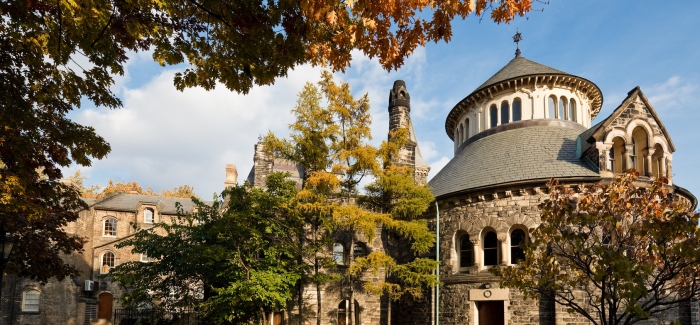As we move into 2022 – with more young people standing up for their futures and holding businesses and influential leaders to account – educational institutions are slowly and surely building sustainability and climate issues into their everyday fabric.
In the last weeks of 2021, student campaigning network People & Planet published its annual university league table assessing 154 UK universities on their environmental and ethical performance. The league scored universities against 13 criteria including energy sources, sustainable food, reducing carbon and sustainability strategy, to see which institutions are on track to meet their environmental targets.
Universities no longer need to share their environment and sustainability data but People & Planet’s University League Manager, Jack Ruane, understands that reliable sustainability credentials are vital for students when choosing a university to study with.
So what are universities doing to play their part in the fight against climate change and is it having an impact? We spoke to the three top ranking UK unis to find out.
#1 Manchester Metropolitan University
With a high score of 86.3 percent in the People & Planet university league, Manchester Metropolitan University (MMU) is fuelling real sustainable change in higher education.
Initiatives include a comprehensive carbon management plan to drive the university towards zero carbon emissions by 2038, a student-led sustainable food network, electric vehicles, a carbon literacy programme for staff and students and a £4.1m state-of-the-art hydrogen fuel cell innovation centre.
“Sustainability forms an integral part of everything that we do, from our teaching and research to the way that we build and use our campus,” says vice-chancellor, Professor Malcolm Press. “We know the environment is one of the top concerns for people of all ages and [ranking first in the People & Planet university league] demonstrates the pivotal role that sustainability plays in university life at Manchester Metropolitan.”
Students are being listened to when it comes to environmental issues too. According to the MMU carbon management plan, nine in 10 students believe sustainable development is something their university or college should actively incorporate and promote, while 91 percent say they are fairly or very concerned about climate change. The university’s response – real action.
MMU have maintained a top three position in the sustainability university league for eight years but know there is much more to do. The university aims to be a global leader, paving the way for others to create sustainable change. A spokesperson said: “Our forthcoming sustainability strategy will outline our ambitions for the next five years and will include our plans to continue embedding climate education into our curriculum, achieve impact towards sustainable development through research, and provide leadership for our students, staff and the wider society.”
#2 King’s College London
Following behind with a score of 79.5 percent is King’s College London, a university committed to making a difference in the world through research, education and service to society, according to Professor Shitij Kapur, President & Principal of King's College London.
In 2021, King's stopped using fossil fuels almost two years ahead of target and emissions have been reduced by 53 percent since 2005. As the institution works towards a net zero carbon target, it plans to engage all its communities to help achieve this goal. The King’s Climate Action Network gives all students and staff an opportunity to contribute to the development and implementation of a climate action plan and take meaningful steps towards climate crisis solutions.
“We recognise that maximising our positive impacts is as important as reducing our negative impacts. I am extremely proud of the enormous efforts of our students and staff who are dedicated to championing environmental and social sustainability across King’s.” Professor Shitij Kapur said.
King’s has skyrocketed to second place after ranking 21st in the previous People & Planet university league in 2019 and a cornerstone to their success is their dedication to sustainability through education.
There are now over 100 modules related to sustainability and climate change across the university, including a newly launched online module called ‘Sustainability and Climate’, available to all students to help understand how climate-related issues are relevant to their degrees, work and career goals.
“Our ranking in the People & Planet University League reflects the wider commitment and progress that King’s has made to maximise our positive impact across our university, and we will continue working with our students and staff to create positive change,” said Director of Sustainability Kat Thorne.
#3 Nottingham Trent University
Meeting challenging targets to reduce their environmental footprint, embedding sustainable development into the curriculum, and delivering sustainable research are just some of the reasons why Nottingham Trent University (NTU) sits comfortably in the top three sustainable UK universities for 2021.
Other initiatives at NTU include a dedicated Energy Team who help to reduce the emissions of the buildings on campus, a waste hierarchy which ensures 99 percent of the university’s waste does not get sent to landfill, and a Green Rewards programme where students and staff can earn points for undertaking sustainable behaviours.
Charmaine Morrell, Head of Sustainability at NTU, said: “we empower our students to take control of their learning and enable them to experience life beyond the lecture hall.
“There are 14 student societies dedicated to sustainability within the Nottingham Trent Students Union and students can become Eco-Ambassadors, joining a network of other sustainability minded students helping us to work towards our carbon emissions and sustainability goals.
“The title of ‘top three’ is external recognition that signals to our colleagues, students, and the wider community that we take sustainability seriously at NTU and that we are good at it. However, there is always more we can do and having very many exciting plans and impactful projects in place for continued successful outcomes.”
Do universities have a responsibility to protect the planet?
Along with many others leading sustainability efforts within higher education settings, Morrell at NTU believes that universities have a huge responsibility in protecting the planet.
“Operationally, they are big businesses which have high energy demands, generate mass amounts of waste and undertake large scale construction projects. Universities also work with external partners, suppliers and investors who have their own environmental footprints which can be influenced,” she said.
“But in addition to their direct impacts, universities play host to millions of young people and employers, teaching their community critical skills and values. They are also hubs of innovative research, which can transform how sustainability is applied across the globe from technical breakthroughs to behavioural developments.”
Beyond recycling schemes and limiting plastic use, universities are embedding sustainability and environmental goals into every aspect of life from the energy used on campus to the curriculum they teach and the partnerships they build.










